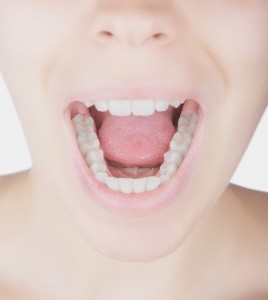 If you think about it, spitting in someone’s face is a real risk to your dental health. And that’s not because the spittee might punch the spitter in the mouth. Saliva is super important to your dental health. It kills bacteria and even helps you perform the function of swallowing food. But it’s also super vulnerable to any challenges or disorders you may have that involve your sleep and/or breathing.
If you think about it, spitting in someone’s face is a real risk to your dental health. And that’s not because the spittee might punch the spitter in the mouth. Saliva is super important to your dental health. It kills bacteria and even helps you perform the function of swallowing food. But it’s also super vulnerable to any challenges or disorders you may have that involve your sleep and/or breathing.
Sleep Deprivation
When you go to bed, your immune system wakes up. It’s when your body does everything from digesting food to sorting out all the information it took in during the day. When you don’t get enough sleep, it logically follows that there are things your body doesn’t do.
One of those tasks involves regulating the immune system, a fantastic combination of antibodies, mucus, inflammation, and more. The body tends to produce more inflammatory hormones when a person doesn’t get enough sleep. And what is gum disease? At its core, it’s inflammation.
Open Mouth Sleeping
Sleep apnea–wherein one’s airway is shut off during sleep–is a common reason for sleeping with your mouth open. In addition, a lot of people sleep on their back much of the night. Within those populations there are people who breathe through their mouth rather than their nose. It’s that demographic that will often experience dry mouth, a lack of saliva. That lack of saliva means a lack of good bacteria, the “germs” in your mouth that kill the bacteria which wear away at gums and teeth.
How to Tell If You’re Mouth Breathing
Here are some signs you may be breathing through your mouth during sleep and the potential implication they have toward your dental health:
- Snoring–When snoring morphs into a stoppage in breathing, sleep apnea is likely at play.
- Bad breath–The reduction in good bacteria means an increase in the toxic-smelling bad stuff.
- Hoarseness–A common temporary fix to hoarseness is to suck on a cough drop or candy. That means your mouth now has more sugar in it, which is what fuels bacteria.
- Brain fog–Caffeine, chocolate, and insert your favorite comfort food here are what some people use to clear out the morning or afternoon haze that happens when you are sleep deprived in some way. Those things are harmless and even good for you in moderation, but a little extra goes a long way in complicating dental aesthetics and oral health.
- Feeling tired and irritable when you wake up–See caffeine and chocolate note above.
Some symptoms require your dental or medical care team to identify.
To diagnose mouth breathing, your doctor or dentist (or orthodontist) may:
- Do visual tests. They’ll look at how well your lips seal, if you have posture changes, dark eye circles, a long face, an open bite, a high narrow palate, or gingivitis (inflammation of the gum).
- Do breathing tests. Your doctor will perform at least two out of the three tests: a graded mirror test, a water retention test, or a lip seal test.
- Ask questions. They’ll also ask questions like: “Do you keep your mouth open when you are distracted?” or “Do you wake up with a headache?” Your answers will help them find the cause of your condition and how to best treat it.
What Causes Mouth Breathing?
It’s called mouth breathing but more accurately it should be called anti-nose breathing. Partial or total nasal obstruction is a common reason for mouth breathing. Noses get blockage from common conditions such as:
- Enlarged adenoids (the tissue in the back of your throat above your tonsils)
- Nasal allergies
- Nasal polyps (abnormal tissue in the lining of your nose)
- Tumors
- Genetics
A reason why mouth breathing goes untreated? When mouth breathers don’t see their dentist regularly. Don’t thumb your nose at that, let your underutilized nose visit us soon, and regularly.







Leave a Reply